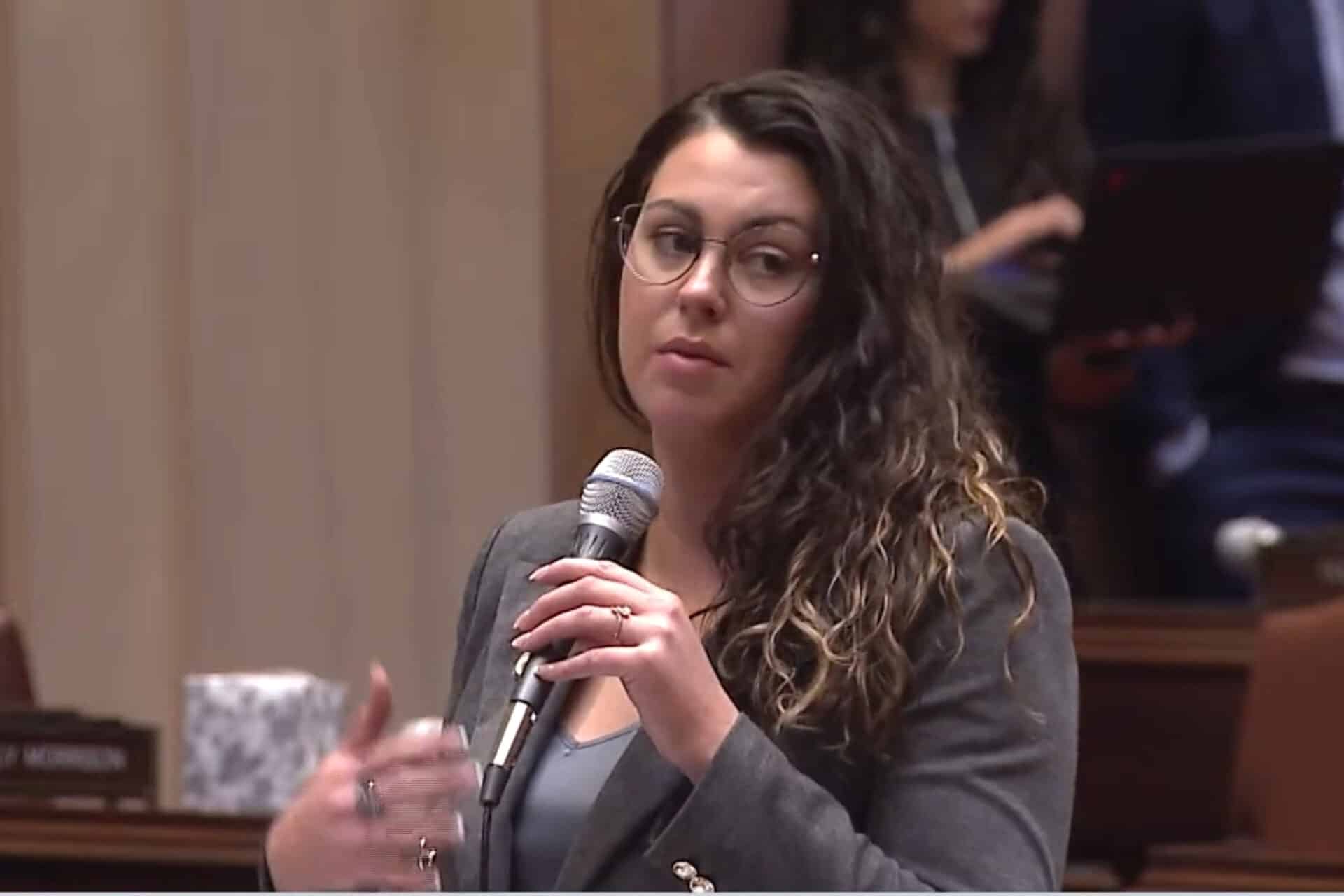by Hank Long
A proposed statewide “ban on book bans” in public schools and libraries is just one of about 100 new provisions contained in a DFL-backed omnibus education policy bill that passed off the Senate floor this week.
SF3567 is sponsored by Democratic Sens. Steve Cwodzinski of Eden Prairie and Mary Kunesh of New Brighton. It passed on a 35-31 vote Tuesday, with Sen. Jim Abeler of Anoka casting the lone vote for Republicans.
A House version of the education policy omnibus bill does not currently contain the “ban on book bans” provision.
Abeler, who serves on the Senate Education Policy Committee, said he and his GOP colleagues were disappointed to see a whole host of new state mandates on school districts in the bill and a lack of remedies to tackle other more pressing issues, such as reading proficiency and truancy issues that continue to plague some districts, four years after the COVID-19 pandemic resulted in many school districts closing their classrooms well beyond Gov. Tim Walz’s two “stay-at-home” orders.
Abeler lamented during a committee hearing on the bill last month that there was almost no input from the “other side of aisle” in the bill.
“In the face of all those challenges, cutting staff, really poor outcomes across the state, the governor was really very proud of himself (during his State of the State address last month) at Owatonna High School commending his education prowess,” Abeler said on Tuesday during the floor debate, with a sarcastic inflection in his tone. “Clearly, all that was left to discuss on that topic was book banning.”
The provision that would prohibit school districts from implementing their own “book ban” policies was discussed among senators in a committee hearing last month.
The proposal would prohibit school districts from “banning, removing, or otherwise restricting access to an otherwise age-appropriate book or other material selected according to a library materials policy based solely on the viewpoint, content, message, idea, or opinion conveyed, except for certain practical, pedagogical, or legal reasons.”
It also would require districts to place a licensed library media specialist in a position of sole authority for developing procedures for the selection and reconsideration of materials in school libraries.
The provision does require a district to permit a parent or guardian to restrict their child’s access to specified library materials and states the policy “must not impair or limit the rights of a parent, guardian, or adult student to request a curriculum content challenge.”
It also protects library media specialists from discipline or discrimination from administrators or school boards for complying with the proposed statute.
During about three hours of floor debate on the bill, Sen. Eric Lucero, R-St. Michael, unsuccessfully offered an amendment related to the “ban on book bans” provision that would give parents a civil cause of action against a school or public library “when it disseminates or otherwise displays to the child obscene material.” It would also eliminate an exemption for schools and other government organizations from being liable for instances where children are exposed to sexually explicit, pornographic and other obscene materials or performances.
Both of those were ruled “not germane” to the bill by Senate President Bobby Joe Champion, DFL-Minneapolis, because they contained elements that he said must first be vetted by the Senate Civil Law Committee.
“There are at least two, maybe three other committees that would have appropriate jurisdiction to hear this amendment,” said Sen. Ron Latz, DFL-St. Louis Park.
While Lucero was forced to withdraw his amendment, Sen. Glenn Gruenhagen, R-Glencoe, said parents want to see more accountability for schools and other government bodies that expose children to sexually-inappropriate materials.
“I’ve been in meetings where they’ve said, ‘if you showed the same information outside the public school that we are teaching to our students, even elementary, you could be arrested for grooming that child.’ Think about that, members,” Gruenhagen said.
Following passage of the bill, Senate Majority Leader Erin Murphy, DFL-St. Paul, praised the “ban on book ban” provision.
“It will stop the alarming spread of book bans at Minnesota’s border by preventing them in our public libraries,” Murphy said.
School nickname changes receive scrutiny
In total, 21 amendments were offered during the floor debate, nine of which were adopted.
One of those amendments that passed was introduced by Kunesh. It would push back the date by one year on a new law that requires public schools to comply with an order given by the newly-established Tribal Nations Education Committee to change their nickname or mascot if that committee finds it depicts an American Indian tribe, individual, custom, or tradition in an offensive manner. Democrats passed a law last year establishing the committee and giving it authority on high school nicknames and mascots with American Indian ties. Schools that were instructed to change their nicknames, logos or mascots were given a compliance date of Sept. 1, 2025, but Kunesh’s floor amendment changed that date to Sept. 1, 2026 in an effort to give schools and districts more time to implement those changes.
“I would just like to give the school districts a little bit more time to sort this out,” Kunesh said.
Sen. Torrey Westrom, R-Alexandria, said one of the schools in his district — Benson High School — is facing administrative costs associated with changing its name and logos for its “Braves” nickname that could exceed $1 million.
Benson High School had already made changes to its mascot and logo more than 25 years ago as part of a legal settlement, Westrom said. “This amendment would give Benson the relief they need on just that one unfunded mandate,” Westrom said on the Senate floor.
Increasing transparency on violence in schools
Democrats voted down a floor amendment from Sen. Julia Coleman, R-Waconia, that would have added a provision to the bill requiring school boards or district administrators to provide parents and teachers with timely notice of violent activity occurring on school grounds or at a school-sponsored activity where injury was involved.
The bill also included a whistleblower-style statute that Coleman said would protect teachers “if they want to come forward, if they want to talk about how bad things are getting, if they need to say, ‘look, this is getting really violent,’ but they are afraid their jobs are on the line as a result of speaking up.”

Sen. Cwodzinski, DFL-Eden Prairie, encouraged senators to vote no on the amendment because he thinks education-related stakeholders need time to provide legislators with more input on the issue.
“Book bans aren’t the crisis in our schools in need of our attention — it’s the half of Minnesota students who aren’t proficient in reading in the first place,” Coleman said. “Our students deserve real solutions to the challenges they face, not political gamesmanship.”
Other provisions in the bill include:
- A requirement that schools permit student journalism platforms more latitude in publishing content without consequences from administration
- A requirement to notify parents if a student is removed from a classroom for more than 10 minutes
- Allowing students who are statutorily considered American Indian to practice smudging — ceremonial burning of tobacco or other like products — in public schools with supervision
– – –
Hank Long is a journalism and communications professional whose writing career includes coverage of the Minnesota legislature, city and county governments and the commercial real estate industry. Hank received his undergraduate degree at the University of Minnesota, where he studied journalism, and his law degree at the University of St. Thomas. The Minnesota native lives in the Twin Cities with his wife and four children. His dream is to be around when the Vikings win the Super Bowl.




